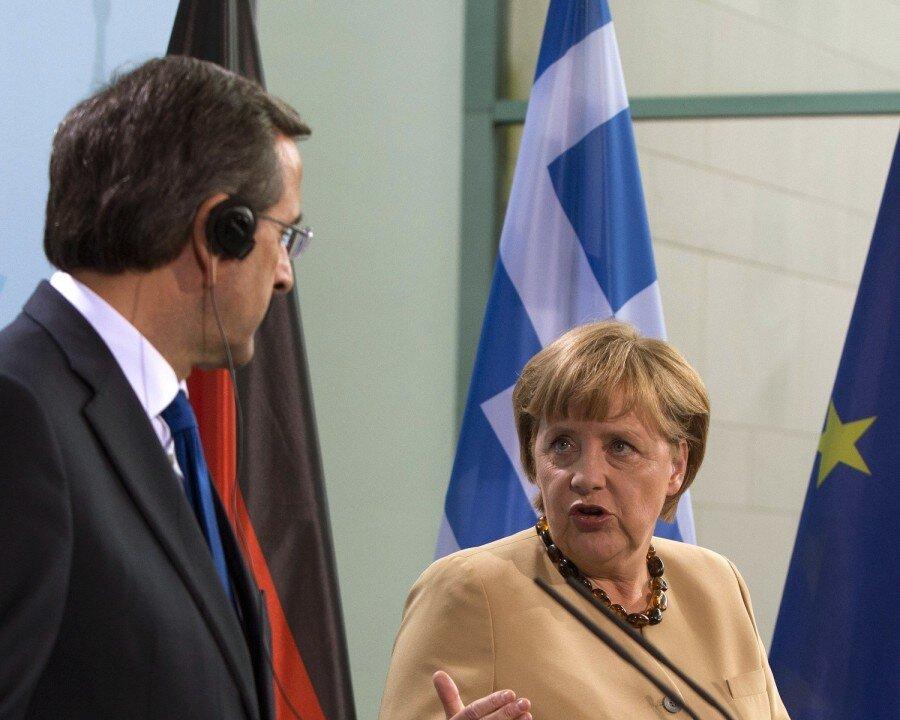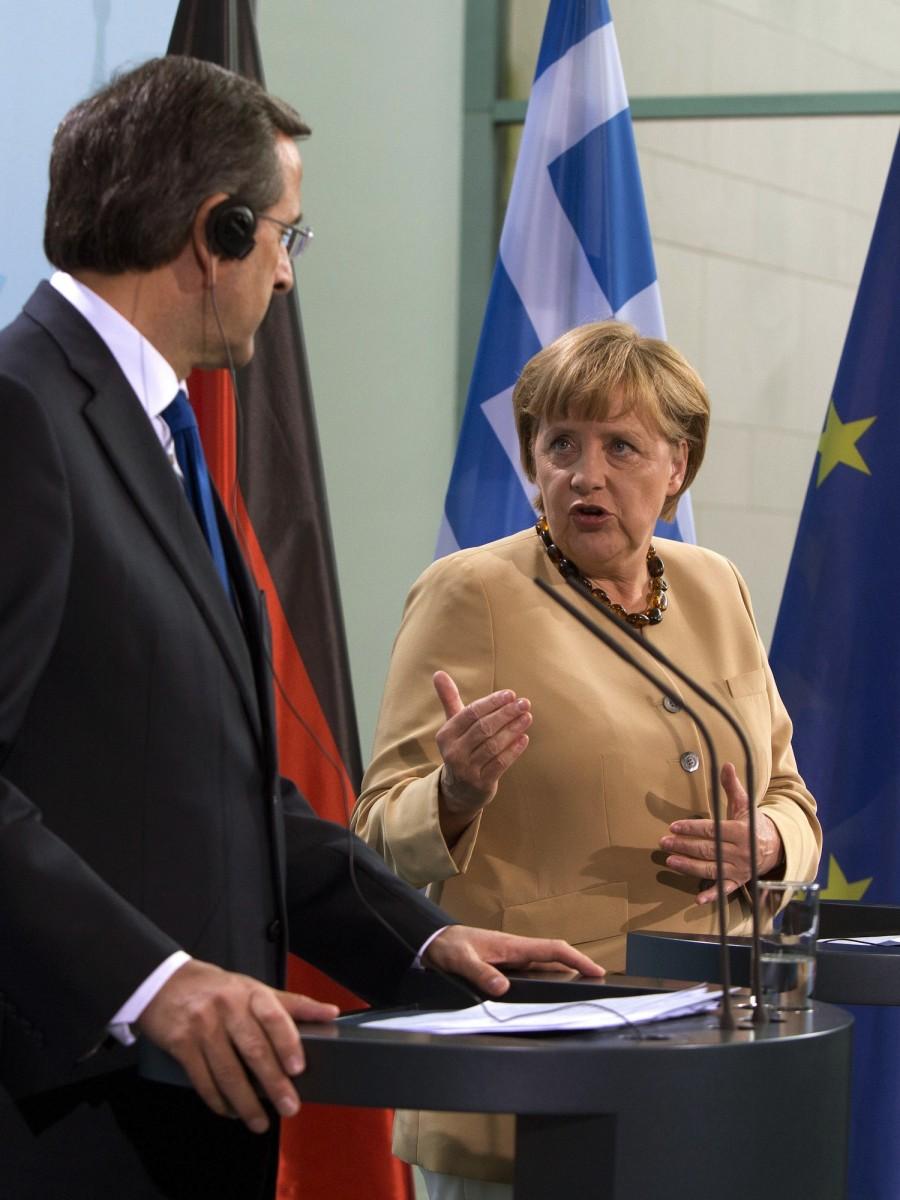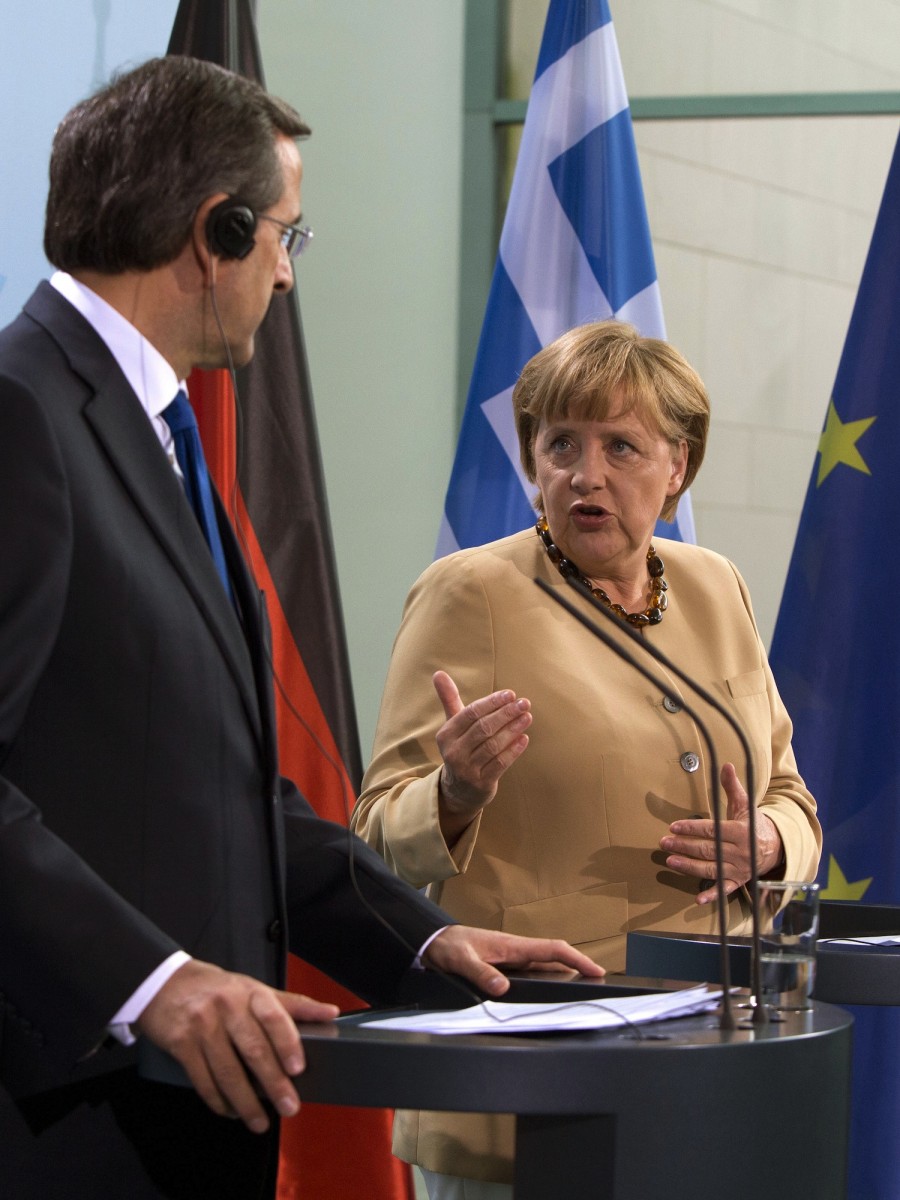Greek Exit Scenarios Gaining Traction
European stock markets pulled back last week as the EURO STOXX benchmark index lost 1.5 percent but the euro currency gained 1.5 percent to 1.2516.

German Chancellor Angela Merkel (R) and Greek Prime Minister Antonis Samaras give a press conference on Aug. 24 at the Chancellery in Berlin. Pete Gannon/AFP/Getty Images
|Updated:
Valentin Schmid is a former business editor for the Epoch Times. His areas of expertise include global macroeconomic trends and financial markets, China, and Bitcoin. Before joining the paper in 2012, he worked as a portfolio manager for BNP Paribas in Amsterdam, London, Paris, and Hong Kong.
Author’s Selected Articles






